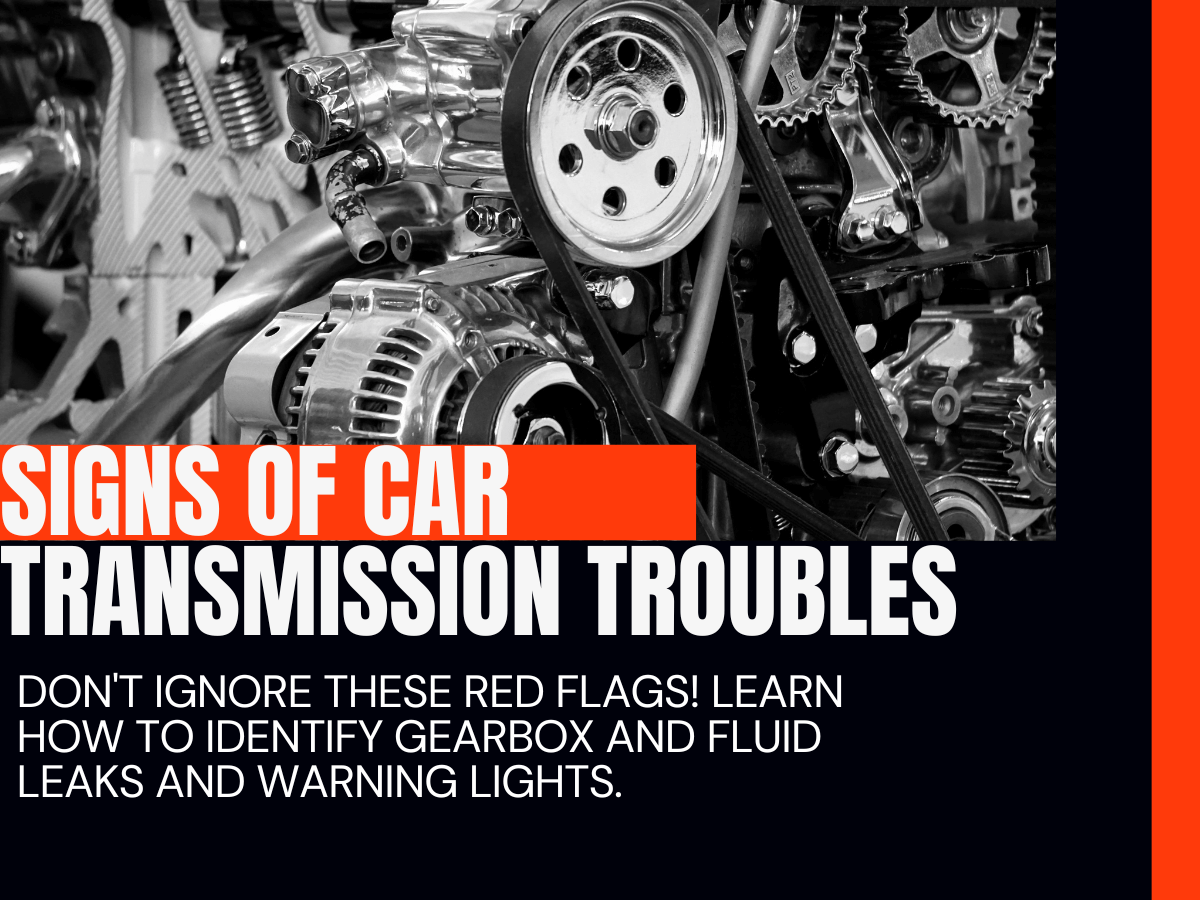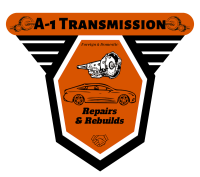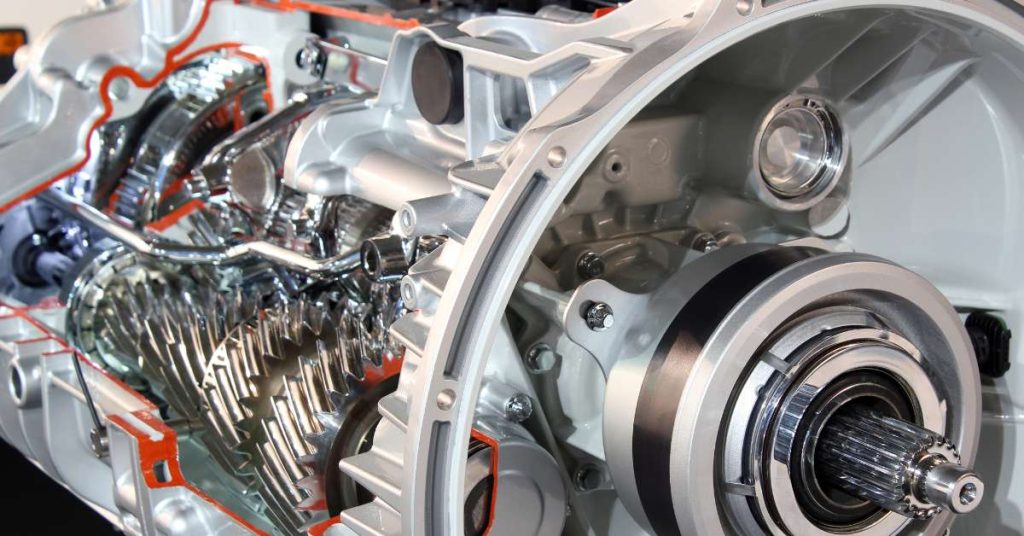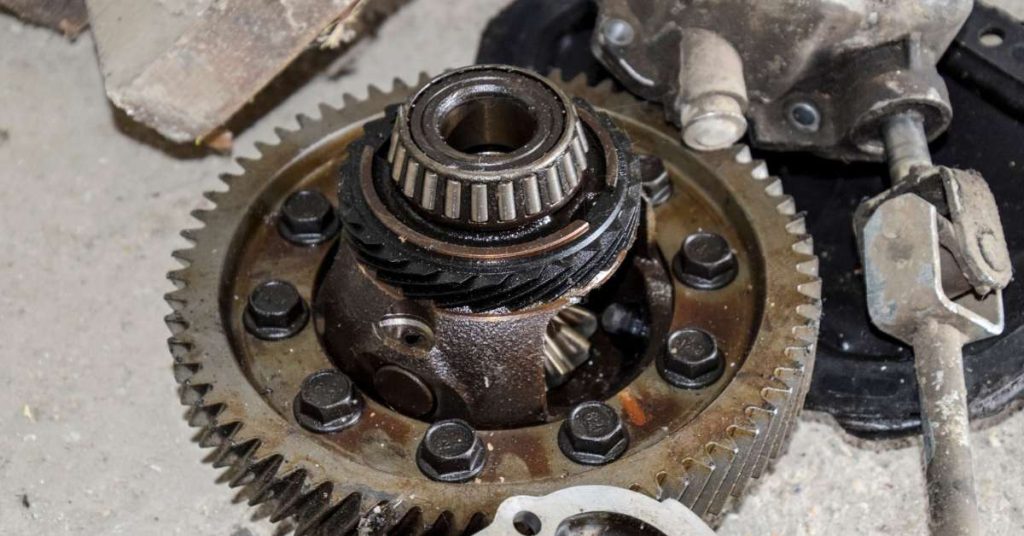
Owning a car comes with its fair share of responsibilities, one of which is ensuring that its transmission is in top-notch condition. The transmission is the heart of your vehicle's drivetrain, playing a crucial role in managing power and providing a smooth ride.
This article delves into the key signs that indicate your car's transmission needs servicing, ensuring you stay ahead of any potential issues.
Signs My Car's Transmission Needs to Be Serviced
Understanding the early warning signs of transmission troubles can save you from costly repairs down the line. Here's what to look out for:
1. Unusual Noises During Gear Shifts
The sound of trouble: Grinding, whining, or clunking noises during gear shifts are red flags.
2. Delay in Movement
A telltale pause: When your car hesitates or delays before moving, it's a sign of transmission distress.
3. Fluid Leaks and Levels
Spotting the problem: Keep an eye out for leaks and check transmission fluid levels regularly.
4. Warning Lights and Error Codes
Dashboard signals: Pay attention to any warning lights or error codes indicating transmission issues.
5. Rough or Erratic Shifting
Feeling the shift: When gear shifts become rough or unpredictable, it's time for a check-up.
6. Unresponsive Gear Changes
Lost in transmission: Difficulty in switching gears or a lack of response is a serious concern.
7. Burning Smell
A scent of warning: A burning smell is often a sign of overheating transmission fluid.
8. Transmission Slipping
Losing grip: If your car seems to slip out of gear randomly, it's a clear sign of trouble.
9. Increased Fuel Consumption
The efficiency drop: Noticeable decreases in fuel efficiency can be linked to transmission problems.
10. Vibrations or Shaking
Unsettled journey: Abnormal vibrations or shaking during a drive can point to transmission issues.
Understanding Transmission Mechanics
Transmission, a critical component of your vehicle, is a complex system responsible for transferring power from the engine to the wheels. It ensures that your engine runs at an optimal speed, neither too fast nor too slow, regardless of the vehicle's speed or terrain. In simple terms, it shifts gears, much like on a bicycle.
Automatic transmissions seamlessly do this process for you, while manual transmissions require driver input. Understanding this mechanism helps in recognizing when something doesn't feel or sound right, prompting early detection of potential issues.
Preventive Maintenance Tips
To ensure the longevity of your car's transmission, regular maintenance is essential. This includes routinely checking the transmission fluid level and color, ensuring it's clear and bright red, not dark or muddy. Changing the fluid and filter according to the manufacturer's recommendations is crucial.
Additionally, avoid straining your transmission by towing heavy loads beyond your vehicle’s capacity and practice smooth, gradual acceleration to minimize wear and tear.
DIY vs Professional Service
For basic transmission maintenance, such as checking fluid levels or minor adjustments, a DIY approach can be sufficient for those with a bit of mechanical know-how.
However, for more complex issues like fluid leaks, strange noises, or performance issues, it's prudent to seek professional transmission service. Transmission systems are intricate, and specialized diagnostic tools and expertise are often necessary to identify and rectify issues accurately.
Cost of Ignoring Transmission Problems
Neglecting transmission problems can lead to severe and costly consequences. Minor issues can quickly escalate into major repairs or even complete transmission failure. This can not only lead to expensive replacements but also compromise your vehicle's safety. Regular maintenance and prompt attention to any abnormalities can save both money and lives in the long run.
Choosing the Right Service Provider
Selecting a competent service provider is crucial for your car's health. Look for mechanics or service centers with certifications and good reputations. Recommendations from friends and family, along with online reviews, can guide you.
Ensure they have experience with your car’s make and model, and don't hesitate to ask questions about their process and warranties on repairs.
Transmission Service: What to Expect
During a typical transmission service, the mechanic will first inspect for leaks and the condition of the transmission fluid. They will then replace the old fluid with new, and if necessary, replace the filter. The technician will also adjust bands and clutches as required. Post-service, they should test drive your car to ensure everything is functioning smoothly.
FAQs
How often should I service my car's transmission?
Most manufacturers recommend servicing your transmission every 30,000 to 60,000 miles. However, always refer to your vehicle’s manual for specific guidance.
Can I drive with a transmission problem?
Driving with a known transmission issue is not advisable. It can lead to further damage and potentially unsafe driving conditions.
What are the signs of low transmission fluid?
Key indicators include slipping gears, delayed acceleration, and unusual noises or grinding.
Is it worth repairing a transmission?
This depends on the age and condition of your vehicle. If the car is relatively new and in good condition, repairing the transmission might be worthwhile.
What causes transmission failure?
Common causes include lack of maintenance, overheating, and using the wrong type of transmission fluid.
Can regular servicing prevent transmission problems?
Yes, regular maintenance like fluid changes and inspections can prevent many common transmission issues.
Conclusion
Staying vigilant about your car's transmission health is pivotal for a smooth driving experience and ensuring vehicle longevity. Regular maintenance, understanding when to seek professional service, and addressing issues promptly can save you from future hassles and expenses.
Remember, your car’s transmission is as vital as its engine, and caring for it should be a top priority.




